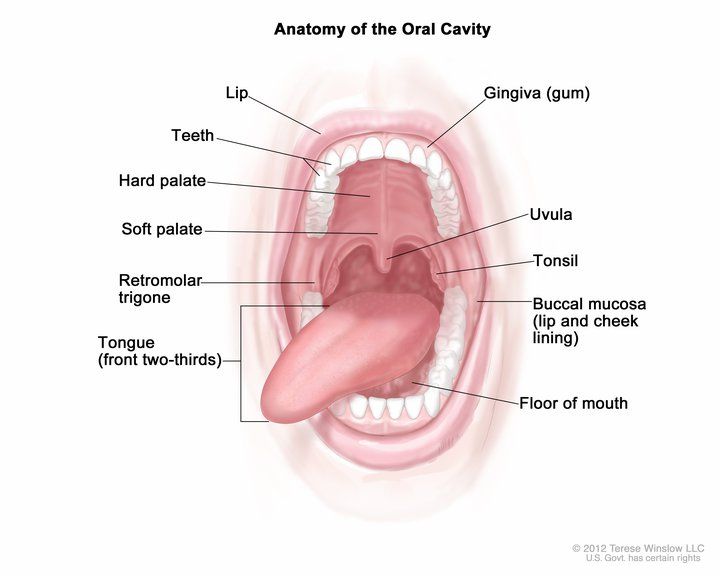Mouth cancer (also called oral cavity cancer) includes:
- The lips
- The front two-thirds of the tongue
- The gums (gingiva)
- The lining inside the cheeks and lips (buccal mucosa)
- The floor (bottom) of the mouth, under the tongue
- The bony roof of the mouth (hard palate)
- Both upper and lower jaw
- The small area behind the wisdom teeth (retromolar trigone)
Oral cavity cancers are the most common type of head and neck cancer, and tongue cancers are the most common type of oral cancer. More than 25,000 oral/lip cancers are diagnosed in the U.S. every year.
What causes mouth/oral cavity cancer?
Alcohol and tobacco use are major causes of oral and lip cancers. (Compared with people who either use tobacco or drink alcohol, people who use both are at much greater risk of developing these cancers.)
What are the symptoms of mouth/oral cavity cancer?
- Ulcers or sores in the mouth that don’t heal
- Bleeding, pain or numbness in the mouth that won’t go away
- Lumps on the tongue or gums
- Loose teeth
- Ear pain
- Lump in the neck
- Difficulty moving the tongue or jaw
- Difficulty swallowing, or pain when swallowing
How is mouth/oral cancer diagnosed?
Early detection is key to survival
In some cases, oral cancer does not cause symptoms until the disease is more advanced. You may be eligible for oral cancer screening at Roswell Park if:
- You have a suspicious spot inside your mouth.
- You were treated in the past for head and neck cancer but have been cancer-free for six months. If you have been treated in the past for oral cancer, it is very important that you be screened regularly in case the cancer returns.
For more information about Roswell Park’s oral cancer screening program, call 716-845-5972.

